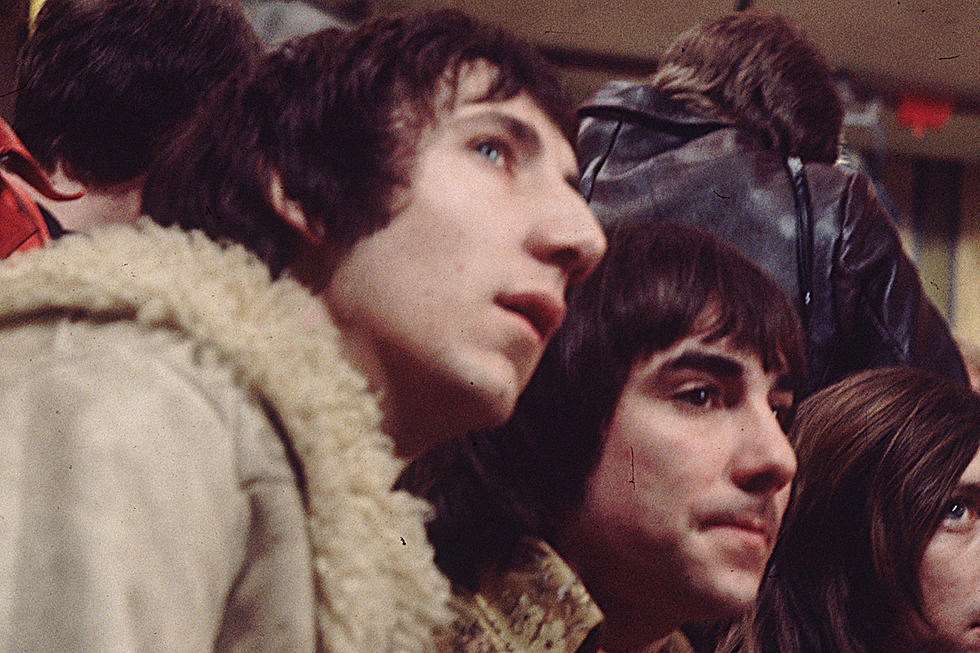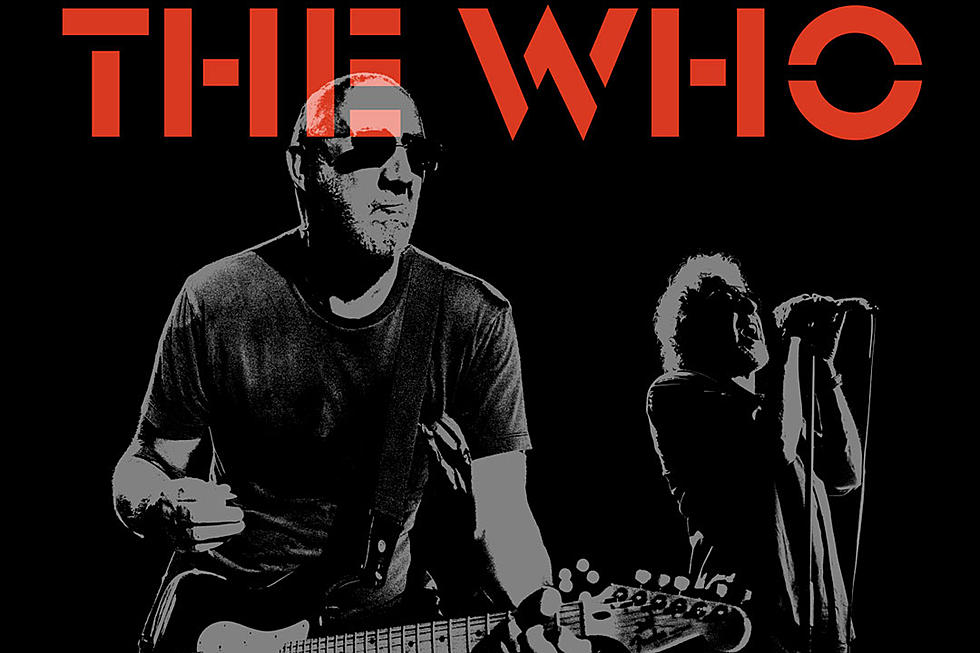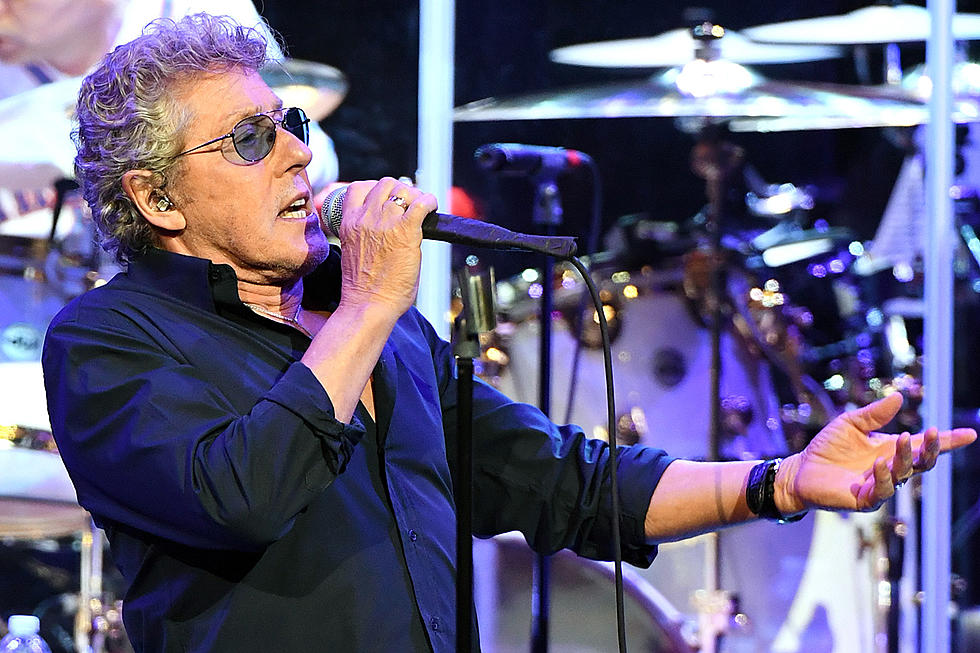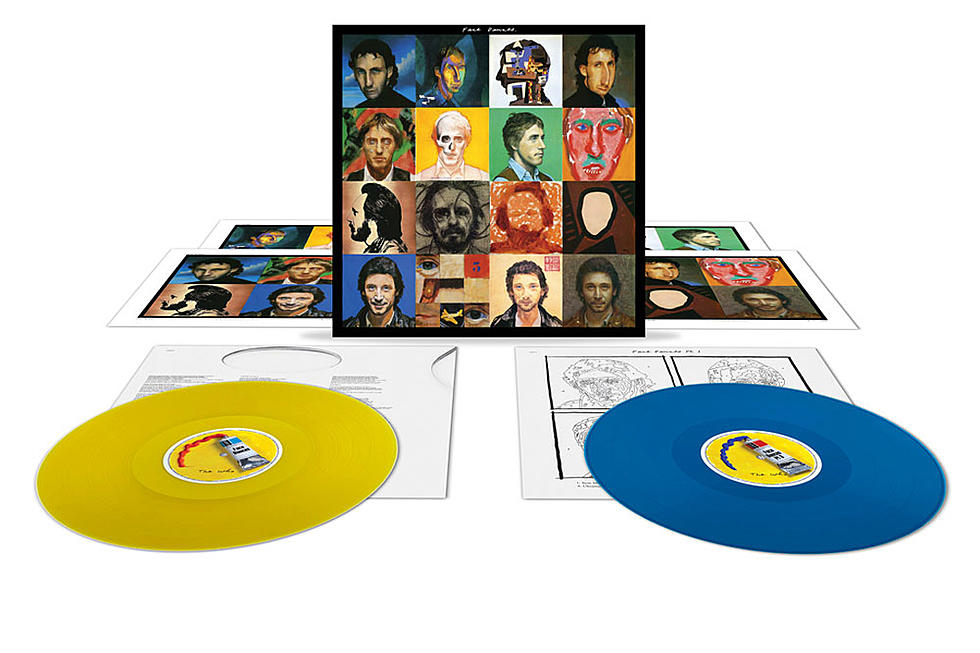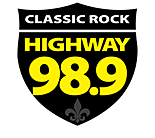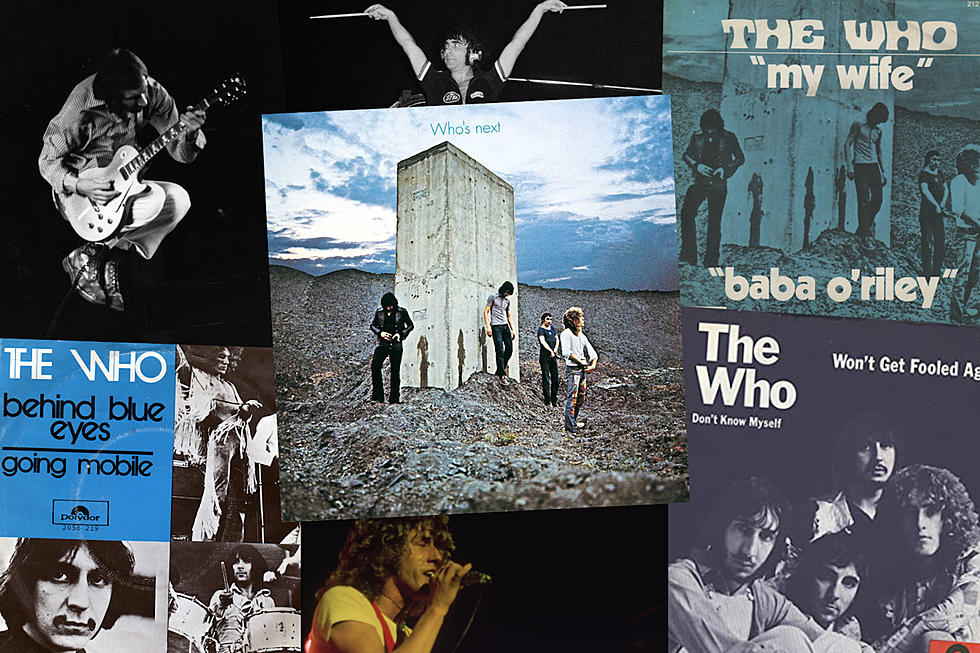
The Who’s ‘Who’s Next': A Track-by-Track Guide
How do you follow up a landmark rock opera like Tommy? If you're the Who's Pete Townshend, with another ambitious conceptual project. And what do you do when that flames out? How about making the best studio album of your band's career -- and one of the best rock albums of all time.
Who's Next is all of that. Released Aug. 14, 1971 as the British quartet's fifth studio set, it's a fat-free, nine-song collection that breaks new sonic ground, for the Who and for rock in general, and is also the best the group sounded to date. Some tracks ("Baba O' Riley," "Behind Blue Eyes," "Won't Get Fooled Again") are classics within the band's canon, but there isn't a bad song on the record and its start-to-finish flow -- on vinyl, CD or stream -- is a stunning dynamic adventure.
But it wasn't easy.
Who's Next notoriously started off as Lifehouse, Townshend’s futuristic rock opera/song cycle/film/theater piece -- partly informed by the teachings of his guru, Meher Baba, and Universal Sufism founder Inayat Khan -- about a utopian society where music was banned until a rebel named Bobby plays one-man pirate radio to bring it out of exile and subsequently enlighten and unite the populace. The project's grandiose vision, which included concerts in London, never quite formulated, and initial recordings in New York (with guests such as Al Kooper and Leslie West) floundered, leaving Townshend on the verge of a nervous breakdown.
Lifehouse was subsequently, and wisely, abandoned, though it would be recreated decades later. Instead, engineer Glyn Johns stepped up to produce a more modest approach back in England, including at Mick Jagger's Stargroves estate, which proved to be just what the Who needed. "Modest" is relative, of course; The use of looped synthesizers on several tracks and a more reigned-in Keith Moon only made the album more powerful, and John's sense of sonics finally captured on record the power the Who could generate on stage. Roger Daltrey's vocals were particularly well-served throughout, and Townshend has often declared it the Who's first "proper" album.
Fifty years on, Who's Next remains a unique combination of intelligence, muscle, taste and diversity that demonstrates the standard a proverbial LP's worth of tunes, by anybody, can truly achieve. And who doesn't love that cover art, though it should be pointed out that only Townshend actually urinated on the slab while the other three stains were produced by rainwater.
Here’s a track-by-track breakdown of Who's Next:
"Baba O' Riley"
Even in the wake of Tommy's operatic achievement, jaws dropped when Townshend's rolling synthesizer announced the start of the album, something unlike fans had ever heard -- or would expect to come from a group known better for the riffs of "I Can't Explain" and "My Generation." Paying tribute to Meher Baba and American minimalist composer Terry Riley, it started out as a half-hour composition but is still a suite of its own in five minutes, ebbing and flowing right up to Dave Arbus' frenetic, song-ending violin solo. Often misidentified as "Teenage Wasteland," it offers Townshend's take on the youth counterculture, particularly in the wake of the Who's performance at the first Woodstock festival in 1969. It's remained one of the Who's calling cards, a staple in concerts that's been played at the Super Bowl, the 2012 London Olympics and myriad other sports events, and on scores of TV shows. Nothing wasted her.
"Bargain"
There are layers to peel through on Who's Next's second track, a love song that's also an ode to Meher Baba's teachings. The themes of sacrifice and the idea that "I'm worth nothing without you," winnowed down from multiple verses during the song's creation, work as both romantic and spiritual surrender. The sophisticated arrangement makes use of subtle synthesizer to give the song a bit of cushion under Moon's forceful propulsion and muscular fills. And Townshend's guitar solo, biting but stopping just short of a scream, is one of his finest.
"Love Ain't For Keeping"
The shortest song on Who's Next rocked harder during the New York Lifehouse sessions but was lightened into a country-flavored trifle back in England. It's also one of the more restrained tracks on the album, an easygoing and welcome breath after the intense one-two punch that opened the LP. If you'd like to hear what it could have been, however -- with Leslie West on guest guitar -- check out the 2011 CD issue of Odds & Sods or the deluxe edition of Who's Next.
"My Wife"
The album blasts off again with this wickedly funny John Entwistle track, a man-on-the-run celebration of domestic turbulence -- including tank and air-o-plane for self-defense. It was initially intended for an Entwistle solo album (and later wound up on 1973's Rigor Mortis Sets In), but this is the definitive version as Townshend and Moon (no Daltrey necessary) lay down a raving foundation for Entwistle's bass, piano and brass parts. Many consider this the Ox's best song, with good reason.
"The Song is Over"
The side-one ending highlight was intended as a pivotal scene in Lifehouse, a moment of both surrender and resolve following a police invasion of a prohibited concert. Daltrey and Townshend share lead vocals and the players, including pianist Nicky Hopkins, let the song guide as melancholy verses build to majestic choruses sung to "wide open spaces" and "sky high mountains." It's six-plus minutes of pop beauty and fades out with the opening notes of the outtake "Pure and Easy," a tease of what might have been...
"Getting in Tune"
Despite the claim by Townshend (as sung by Daltrey) that he "can't pretend there's any meaning here or in the things I'm saying," the side two kickoff is a deep rumination about conflicts between physical and spiritual existence and how music helps to bridge the gap. The promise to "tune right in on you" is another that could be romantic or devotional, and the song's forceful dynamics embody the lyrical resolve to triumph amidst the struggle. Moon, meanwhile, gets to let loose a bit as the melody segues into Daltrey's bellowing declarations on the chorus.
"Going Mobile"
Who's Next gets back to wide open spaces on the album's other trio track (Townshend sings lead). It's a kind of cousin to Canned Heat's "On the Road Again," putting the narrator in a, yes, mobile home and celebrating the open highway and being on the lam from "the police and the taxman." Moon's shuffle is particularly impressive during the track -- not a technique we hear a lot from him but he keeps the song in the pocket, with just enough fills to put his stamp on it.
"Behind Blue Eyes"
The result of an unrequited flirtation with a female groupie in Denver during June of 1970, "Behind Blue Eyes" was assigned to Lifehouse's villain Jumbo, but more than stands on its own in the context of Who's Next. Al Kooper played organ on the first recordings of the song in New York, but the eventual rendition proves the Who could handle it just fine themselves. The quiet first half is one of the prettiest arrangements the band ever put on record, and the blast-off back end is pure Who -- slashing guitars, manic drumming, thunder bass and from-the-mountaintop vocals. You can almost feel Daltrey's microphone twirling above his head just listening to it.
"Won't Get Fooled Again"
The revolution may not be televised but it was on disc as Who's Next ends with an epic, rocking screed against power, corruption and gratuitous sloganeering. Daltrey gives Townshend's cynicism a powerful sneer throughout, while the pair of lengthy synthesizer passages create an edge-of-your-seat tension so beautifully broken by power chords at the start of the song and Daltrey's all-time, throat-shredding scream near the end. "Fooled's" eight-and-a-half minute length is more keeping with a prog track, but there's nary a noodle and not a second wasted. (It sounded great with classroom instruments on The Tonight Show with Jimmy Fallon, too.) And it ends the album with the perhaps unintended extra message that the "new boss" Who is decidedly NOT the same as the band we knew and still loved before.
Top 100 '70s Rock Albums
More From Highway 98.9

